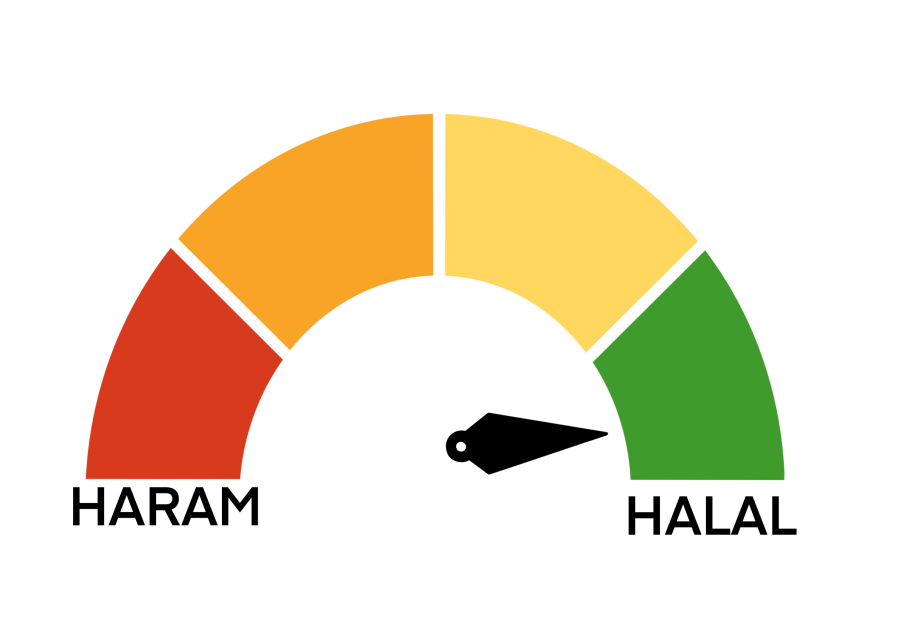Easy ‘A’: Sunnah system allows Muslims to increase good deeds tenfold
Ramadan marks the period when Allah (SWT) revealed the Quran to Prophet Muhammad (PBUH). The Prophet couldn’t read or write but relayed God’s words to his companions to scribe the sentiments. Muslims refer to The Quran to strengthen their deen (religion) through acts of Sunnah in hopes of entering Jannah (heaven).
HISD will close all its schools on Friday to observe Eid al-Fitr. Eid al-Fitr marks the end of Ramadan where approximately 1.9 billion Muslims worldwide participated in the disciplined, month-long fast this year.
But Ramadan isn’t just about fasting from food; instead, it’s about refraining from indulging in earthly desires that impurify Muslims’ souls. Muslims re-evaluate their relationship with Allah (God) and assess their haram and halal ratio. They ask themselves:
Are my sins out-balancing my righteous deeds? How can I correct my actions and strengthen my deen (religion), not just in Ramadan but for the rest of my life?
Prophet Muhammad (PBUH) is the Messenger of Allah and a leading example of a virtuous Muslim whom all Muslims are advised to look up to as a symbol of modesty. The Prophet’s holy acts are scribed in hadiths, documents describing traditions that the Prophet exercised, which guide Muslims to imitate those traditions, or Sunnah, so they can pad their souls with purity.
Committing acts of Sunnah helps keep Muslims close to Allah by duplicating The Prophet’s religious priorities, which pleased Allah.
These are a few Sunnah that help physically and spiritually detoxify Muslims from secular influences during and beyond Ramadan:
Sleeping on your right side—In human anatomy, the heart and stomach are located on the left side of the body, and to avoid piling pressure on those internal organs, sleeping on your right side protects your digestive system and blood circulation.
Drinking and eating while seated—The body is in equilibrium when it’s at rest, or sitting, and when one is standing while consuming solids and liquids, the contents don’t settle peacefully in the stomach. Therefore, the liver can’t dispense the nutrients to respective areas of the body. The food and liquids will plunge to the stomach when one is standing and move to the lower parts of the body, skipping over the gradual distribution process that feasting while sitting down encourages.
Smiling—People who smile make others feel at peace around them and can interact cordially, and they are thus complimented for bringing such ease to situations.
Showering on Fridays—Jum’ah prayers are prayers held every Friday at mosques at noon. Prophet Muhammad advised his companions in the mosque to shower before Friday prayers to avoid looming bodily odor. In Arabia, impoverished Muslims only had one robe on their backs to pray with and maneuver in every day. A limited wardrobe mixed with a humid climate produced a stench in the mosque where The Prophet issued this advice.
Saying “Bismillah” before starting anything—“Bismillah” means “In the name of God,” so when Muslims commence any actions with that phrase, they admit what they’re doing is on behalf of Allah. Declaring that they’re representatives of Allah solidifies the Muslims’ alliance with Their Creator.
Entering the bathroom with your left foot and exiting with your right—Before relieving yourself, it’s advised that Muslims enter the restroom with their left foot facing away from the Qibla, the direction of the Kaaba in Mecca. Muslims pray five times a day, facing the Qibla.
Playing with kids—Prophet Muhammad loved his kids. He expressed his love for them by carving out quality time for them, playing with them and making them laugh. Spending time with loved ones is a gracious deed as you’re coddling the minds of the future and being a dependable role model to bring happiness into their lives as they mature and look to you for comfort and advice.
Breaking fast with an odd number of dates, or water—The Prophet regularly broke his fast with an odd denomination of dates. A hadith states that Allah likes odd numbers: “Allah is odd (one) and loves what is odd.” The Five Pillars of Islam, five daily prayers, seven levels of Jannah (heaven) and the seven seas are all odd creations by Allah, intending to worship the “oneness” of Him.
Oiling and combing the hair—The Prophet relayed that those who comb their hair (right side to left) as a nightly ritual will shield themselves from evil. It relieves the head from stress, and those who comb their hair in the morning will maintain peace until the evening. Muslims who comb their eyebrows (right to left) are “protected from any contagious disease.” Oiling the hair refers to eyebrows, eyelashes, (right eye to left) then the whole head.
Practicing the ⅓ rule: Fill stomach with ⅓ food, ⅓ water and leave ⅓ for air—Gluttony is not permissible in Islam. It’s advised to eat a couple of “mouthfuls to keep [their] spine straight.” The Prophet said, “No human ever filled a vessel worse than the stomach. Sufficient for any son of Adam are some morsels to keep his back straight. But if it must be, then one-third for his food, one-third for his drink and one-third for his breath.”
Short midday naps—It was a common practice that The Prophet engaged in. It’s peaceful, and in Islam, devils don’t sleep. Naps improve memory and promote wakefulness, and it’s encouraged to establish a healthy balance of light and dark.
Sleeping in a state of wudhu (ablution)—Wudhu is a cleansing ritual Muslims perform before praying. The purified state is broken with flatulence or when one uses the restroom, but sleeping in ablution comes with several incentives. Muslims will be protected from nightmares. Angels will come to you and make du’a (prayer) for Allah to forgive you for your sins. The soul will rise from the sleeping body and assume sujud, or a prostrated position when in prayer, under Allah’s Throne. Muslims who fall asleep while reciting surahs (chapters in the Quran) will receive the reward of being in salat (prayer) and dhikr until he awakens.
Reciting Ayatul Kursi before sleeping—Ayatul Kursi means “Throne of Allah.” Muslims who recite this excerpt from Surah Al-Baqarah, the longest Quranic chapter, are guarded by Shaytan with two angels.
Feeding your spouse with your right hand—It’s a gesture of intimacy and reverence. It’s imperative that this act is done with the right hand because Shaytan (Satan) eats with his left, and feeding or eating with the left hand is discouraged as it mimics the devil.
Caring for a cat—Cats are holy animals and widely revered in Islam for their purity. Cats are allowed inside mosques, and water drunk by cats is still usable for wudhu. Cats should be treated with respect, fed and loved adequately.
Dusting your bed three times before going to bed—The Prophet dusted his bed before retiring to check for anything harmful resting on the surface. He used the edge of one of his lower garments to protect his hand from touching anything painful.
As the five daily prayers (Fajr, Dhuhr, Asr, Maghrib and Isha) are obligatory to complete, there are extra prayers, like Istikhara, that serve as “cheat codes,” which Muslims take advantage of heavily during Ramadan to grasp their dreams and wash away their sins.
Tahajjud—This prayer is performed after Isha (prayer at night) until Fajr (prayer in the morning) with an indefinite number of rak’ahs. A rak’ah is a series of movements that yield one iteration. Each of the five mandatory prayers requires a different amount of rak’ahs. One rak’ah equals standing with your hands (right hand on top of the left) on your chest and head bowed, bending down with your hands on your knees, standing up again, bowing down in a prostrate position, sitting up, bowing again, then getting up or remaining seated. Muslims view Tahajjud as sacred because, in the last third of the night, Allah sinks to the lowest part of heaven to see any Muslims praying Tahajjud.
Taraweeh—Muslims pray eight rak’ahs total, but it is Sunnah to pray 11, as The Prophet did. The rak’ahs are divided into four where there is a break between and among the four, the rak’ahs are separated into two rak’ahs each. Then Muslims pray Witr, which is an odd number of rak’ahs, usually one, three or five.
Your donation will support the student journalists of Bellaire High School. Your contribution will allow us to purchase equipment and cover our annual website hosting costs.



